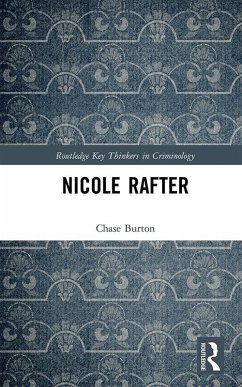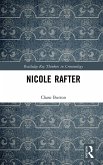Dieser Download kann aus rechtlichen Gründen nur mit Rechnungsadresse in A, B, BG, CY, CZ, D, DK, EW, E, FIN, F, GR, HR, H, IRL, I, LT, L, LR, M, NL, PL, P, R, S, SLO, SK ausgeliefert werden.
Meda Chesney-Lind, University of Hawaii at Manoa
Nicole Rafter, throughout her career, addressed crucial issues to which mainstream criminology paid far too little attention. They include genocide, gender and imprisonment, media, the link between criminology and eugenics, and criminology as a discipline. Chase Burton's well and intelligently written book makes Rafter's work accessible to new generations of scholars, embedding it in a broad body of scholarship.
Joachim J. Savelsberg, author of Knowing about Genocide: Armenian Suffering and Epistemic Struggles









